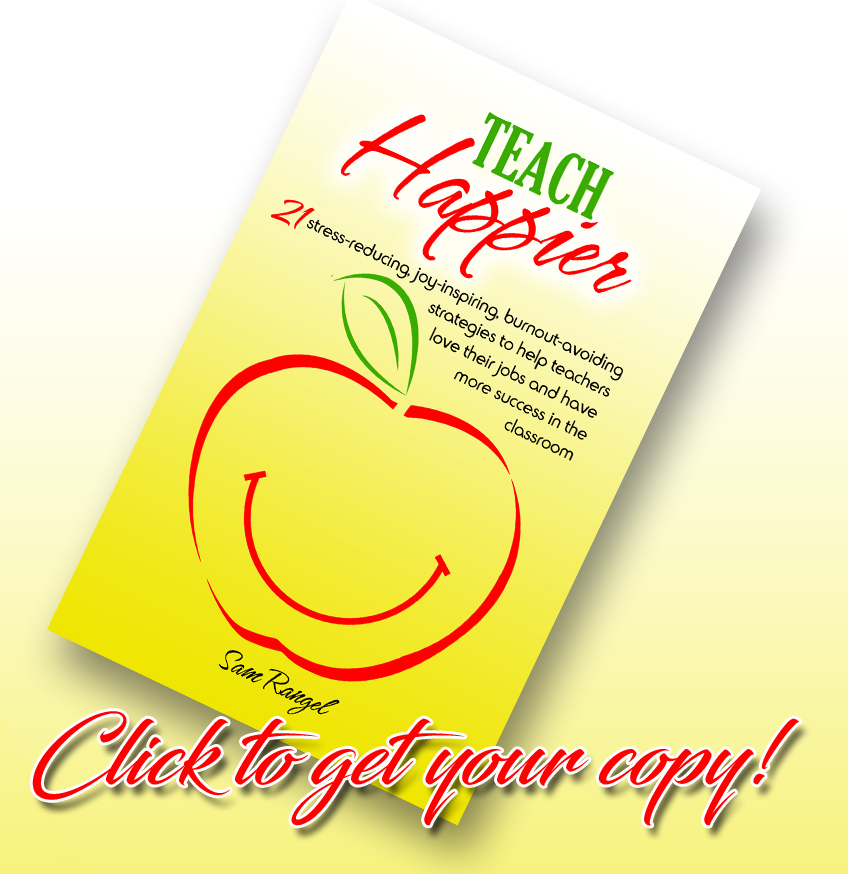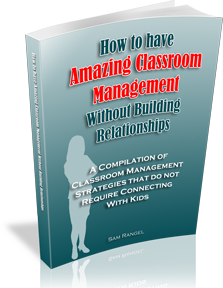One of my favorite shows is Discovery’s Gold Rush. Gold Rush is a show that follows the adventures of different camps of gold miners. I have been following the show since its first season, and I find it fascinating how these miners dig for gold in the Klondike of Alaska. I wish they would watch their language a bit more, so they wouldn’t have to be “beeped” so often, but other than that, I love the show.
“How does a show about digging for gold connect with my classroom, Sam?”
I’m glad you asked.
I was speaking to a teacher recently about some of her students. “There are some students in my class, Sam, that just don’t want to learn.” She told me. “It’s getting a little frustrating that these students just don’t care about learning. They just don’t want to do follow my lesson, and they’re beginning to be disruptive.”
I listened, and I knew exactly what she was talking about. After teaching for 20 years, I had plenty of days when I left school frustrated and upset, because I had students who just would not get with the program, and I felt like just giving up on them. If they choose not to learn, then too bad for them. It’s not my problem anymore. I tried.
Anybody know what I’m talking about?
I listened as the teacher finished sharing her frustration, then she waited for my response.
I looked at her, told her I understood her frustration, then I said four words.
“Get a new shovel.”
The teacher looked confused, so I told her about Gold Rush.
In the show, the miners spend their time digging. They dig and dig, then run the dirt through the wash plant, so the gold can be separated.
There are times when the digging is easy. The dirt is scooped up without any problem, and life is good. On the other hand, however, there are times when a plot of land either has a lot of boulders or is so frozen that they can’t break through, and the digging stops.
What you’ll notice when the miners run into a hard piece of land is that they don’t give up. They don’t say, “Well, this spot is frozen, so we can’t dig. We’ll have to find somewhere else to find gold.”
That never happens.
If the shovel they were using on the easy ground doesn’t work on the hard ground, what do they do?
Right.
They get a new shovel.
They change it up. They adapt. They get a stronger more effective shovel.
They get help.
If one bulldozer isn’t enough to break the ground or remove boulders on that hard piece of land, they get another dozer to come and help.
The bottom line is that they don’t leave the gold in the ground. They find a way to break through the hard dirt to reach what they are looking for.
Our classrooms are like the gold fields.
We spend our days digging into the hearts and minds of our students, and we find gold, and kids learn.
Some of our students are easy to teach. Digging isn’t so difficult, and we are able to find the gold in those students with relative ease.
Some students, however, have their gold buried deep beneath a hard surface that seems impossible to break through.
With these students, the strategies that we used to reach the easy students – our shovel – doesn’t work. This doesn’t mean that there is no gold – value – in those students. We just have to change things up with them.
We have to get a new shovel.
We have to keep trying new ways of teaching until we find gold or we run out of year.
If our new shovels don’t work, then we have to get some help. We have to get another dozer to help you break through the hard exterior that is hiding the gold. We have to get help from others – teachers, parents, admin, etc.
Yes, it’s frustrating when some students don’t seem to want to learn. They don’t understand how important an education is to their future. They are hard dirt, and as much as we try, our tried and true shovel that we’ve been using for years, won’t have an impact on them. We can’t give up, however. There is gold in that child, and we have the responsibility to dig it out.
We have to make the decision – and sometimes, it’s a tough decision – to get a new shovel. We have to try a new way of teaching, another strategy, a different approach. This may mean that we will have to throw away our original lesson plan and start from scratch. We must keep digging in order to reach that gold.
We must keep digging.
If you haven’t seen Gold Rush, you should check it out. There are a lot of good lessons in that show that connect to what we do in the classroom in the areas of leadership, teamwork and yes, perseverance.
I hope the cast of Gold Rush reads this. If you do, first of all, I want to say thank you for providing me with an analogy that I can use with my audience of teachers, and secondly, I would like to ask you to watch the language. All that beeping gets annoying.
Let’s keep digging.
Until next time, here’s to your Success In The Classroom!
Thanks,
Sam



